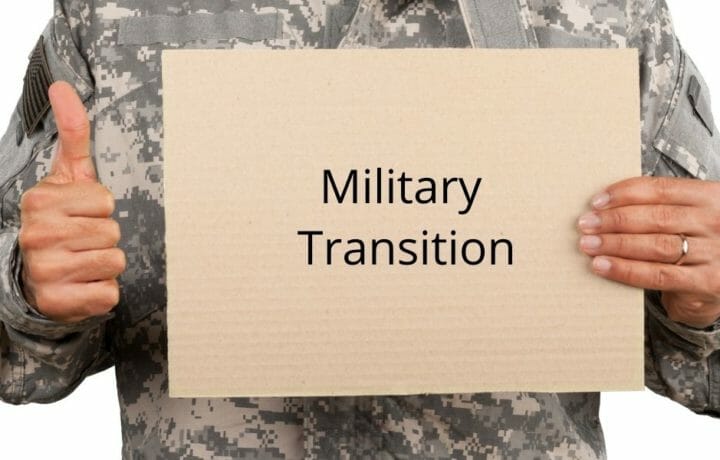So you served as a helicopter pilot. Or aboard ships. Or operating tanks. On paper, your military experience may not look like a good match for some of the jobs that now interest you as a civilian. But don’t be too quick to pass on your hopes for a career change. Successfully making the switch often comes down to your own narrative. Connecting the dots between your past and your future career sometimes requires crafting a really good story – and illustrating it with your security clearance.
Nancy Collamer is a career coach and author of “Second Act Careers: 50+ Ways to Profit from Your Passions During Semi-Retirement”. She advises service members to conduct a serious background check on themselves at the onset of a career transition.
“Take some time to go through your background and the world of your experiences,” said Collamer. “Not just your military skills, but also any volunteer work you’ve done or even some of the things you might have been involved with earlier, like helping to write your college newsletter. What are the pieces you’d like to bring forward into this next act? What did you enjoy? Then ask yourself why. What it was that you found so satisfying?”
Collamer says the “why” questions are critical because the answers often reveal consistency and patterns you might not recognize right now. Collectively, they speak volumes about what you enjoy doing and how often you’ve found yourself in similar roles, such as mentoring or managing projects. Once you understand why you enjoy particular jobs or tasks, you can aim your job search directly toward real-world job opportunities.
“Start searching the job boards for some of the specific careers that interest you and you’ll start seeing the skills and requirements they demand,” she said.
This is useful information, as it helps you see the connections between your past experiences and current job opportunities. That data makes it easier to tailor your resume to specific jobs.
While having a security clearance provides a distinctive edge in jobs that require it, a clearance still serves as a good add-on to your story even when it isn’t required. Hiring managers are forming an idea about a job seeker’s skills when they’re reviewing a resume. But they start to form an idea about the individual when they see a security clearance. For example, if you’re interested in a management job or a career in the finance industry, a security clearance tends to round out the character of the person on the paper.
“To employers, a security clearance says you are trustworthy person,” she said. “That’s a very good thing to highlight.”
Collamer cautions that the story may not yet be complete without some form of training or study relevant to the industry. But that doesn’t necessarily mean you need to complete a four-year degree or even an associate’s degree or certification.
“One of the best ways to show you are serious about a particular career field is to demonstrate some form of professional development,” she said. “You can take part in workshops or a training event or courses to list on your resume. You may have to make some investment in training but it could be in the short term.”
At this point, you have a story to tell. From the cover letter to the resume, you have the information to convey a logical extension of your past skills to your present career goals. Instead of a chronology, you’ve got continuity – something hiring managers like to see.
The bottom line – let your resume be a good read. If it has a consistent theme throughout, shows a logical flow of skills and training, and is compelling by value of a security clearance, it may be a story hiring manager can’t put down.



